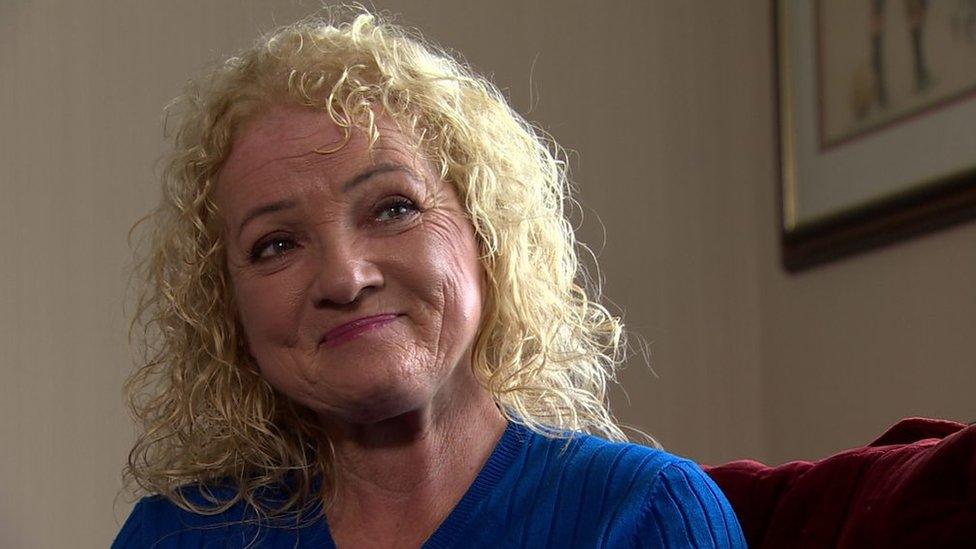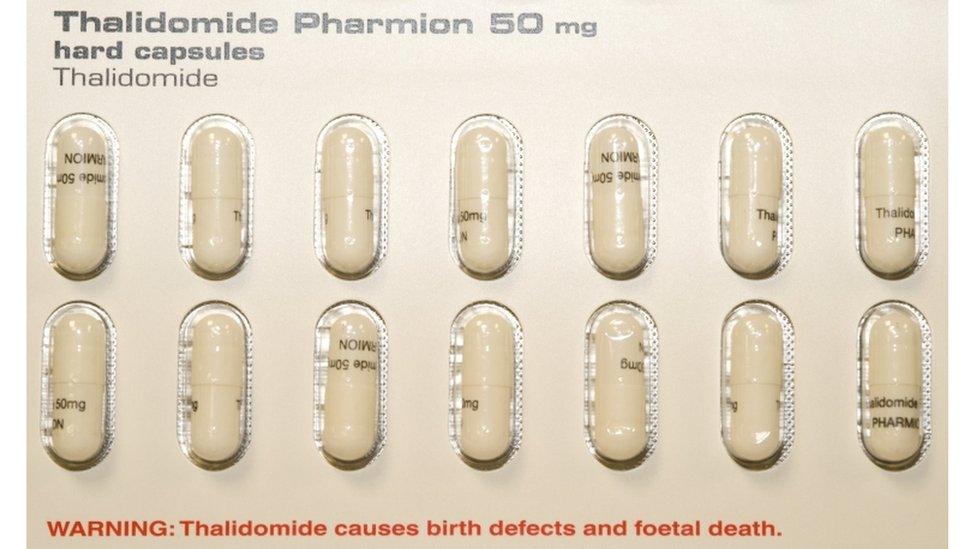NI Thalidomide victim hits out at German 'U-turn'
- Published

Kim Fenton from Belfast said the German government had done a "U-turn" on assurances made to Thalidomide victims
A Thalidomide victim from Northern Ireland has accused the German government of "evading any kind of responsibility" towards victims.
Kim Fenton told the The Sunday News it had done a U-turn on assurances made to those affected.
Last year British campaigners opened up a channel of communication with the German government.
However they said it has reneged on assurances it would pay towards the ongoing medical care of UK victims.
The talks that took place in September in Brussels were hailed as a huge breakthrough.
The Thalidomide Trust said victims have since been "betrayed".
The Trust said they were given a "solemn promise" by the then German State Secretary for Family Affairs that Berlin had "finally accepted its responsibility" to pay for the health needs of Britain's Thalidomide survivors at the same levels as its own nationals.
However it said they had been let down.
Kim Fenton's mother Agnes Lattimer, from Belfast, was among those who took the drug.
Mother-of-three Kim, who was born without legs, shortened arms, twisted hands and no thumbs, is the public face of the thalidomide campaign in Northern Ireland.
Reacting to the latest development she said: "They seem now to be giving hundreds of excuses but they are not giving us any good reason why they've done an about turn.
"We are dealing with a government who are full of empty promises."

What is Thalidomide?
Developed in 1954 as a safe sedative by the German pharmaceutical firm, Chemie Gruenenthal, the drug was also used to ease morning sickness.
However, it was banned in 1961 after being linked to severe birth defects and internal organ damage in babies across Europe.
It is one of the worst disasters in medical history.

Craig Millward from The Thalidomide Trust said while the government had not made a direct offer, they "made a commitment to examine what political responsibility might look like".
They had two meetings with the then state secretary and other government officials
"It was very very positive. We were talking in terms of how we can settle this," he said.

Thalidomide capsules in a blister pack
Following the election, the state secretary left his role and is now working for a private company.
After he left Mr Millward again wrote to the government.
In the letter to Mr Millward seen by the BBC the German government said no agreement had been reached.
It added: "Moreover, no further activities were agreed upon which would lead to an increase in the number of persons receiving benefits from the Contergan Foundation for Disabled Persons (Conterganstiftung für behinderte Menschen).
"Therefore, I hope you will understand that there is currently no basis which would allow our Ministry to follow up on this topic."
A spokesperson for the German Federal Ministry for Family Affairs told the BBC the discussions had been "internal and confidential debates" and they could not comment on the individual content.
It added: "The Federal Government has established a benefit scheme which has proved its worth since 1972 when it comes to dealing with global compensation claims due to thalidomide damage directly caused by preparations by the company Grünenthal.
"From the viewpoint of the Federal Government, there is no legal or political basis for any benefits from the Federal Government going beyond those benefits."
- Published8 October 2017
